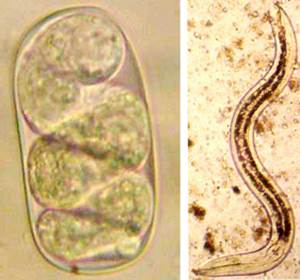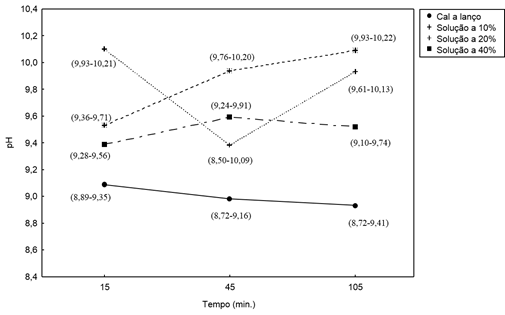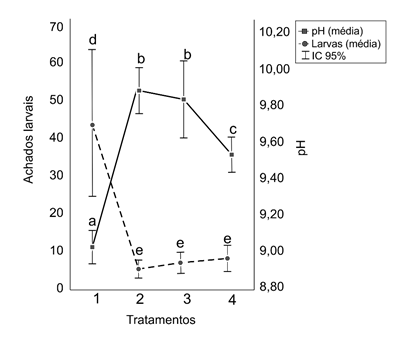ABSTRACT
Wild animal breeders are always looking for effective ways to care for their livestock. Intestinal parasites affect animals in captivity, reducing their survival and reproduction. This study aimed to evaluate the effectiveness of quicklime for use in soil disinfection and prevention of reinfection of endoparasites in paca (Cuniculus paca) kept in captivity. Soil samples of pacas’ stalls were analyzed using the modified Rugai method. Two experimental stages were evaluated; the first at 5, 45 and 105 minutes after treatment and the second at 7 days and 14 days after treatment. The pH values of the samples were checked after the application of four treatments. An application of 400g/m2 of quicklime spread out on ground or 500mL/m2 of three lime solutions (10%, 20% or 40%, w / v) applied on ground. In the first stage, the lime spread out on soil was ineffective in parasites control, while the 10% solution provided the best control of parasites. In the second stage, the solutions were effective in raising the pH, but there was no significant difference in larval findings. In conclusion, under the conditions of the study, 10% solution increased the soil pH and had good ability to inactivate the eggs of Strongyloides sp.; that is economically interesting. However, for effective control of Strongyloides sp. in pacas kept captive, both the frequency of application of solutions up to 20% of lime and the adoption of a good worming schedule should be taken into consideration.
Keywords:
wild animal; disinfection; production; health management

 Thumbnail
Thumbnail
 Thumbnail
Thumbnail
 Thumbnail
Thumbnail
 Thumbnail
Thumbnail
 Thumbnail
Thumbnail




